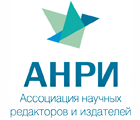DOI 10.17586/0021-3454-2022-65-11-802-812
UDC 519.8
PLANNING THE RECONFIGURATION OF MULTI-MODE COMPLEX OBJECTS
A. F. Mozhaisky Military Space Academy, Department of Automated Control Systems for Space Complexes; St. Petersburg Federal Research Center of the RAS, St. Petersburg Institute for Informatics and Automation of the RAS, Laboratory of Information Technologies in Systems Analysis and Modeling; Leading Researcher
A. B. Umarov
A. F. Mozhaisky Military Space Academy, Department of Automated Control Systems for Space Complexes ;
D. A. Pavlov
Mozhaysky Military Space Academy, Department of Automated Control Systems of Space Complexes; Post-Graduate Student
A. V. Gordeev
A. F. Mozhaisky Military Space Academy, Department of Automated Control Systems for Space Complexes;
Read the full article
Abstract. An approach to planning the reconfiguration of complex multi-mode objects under conditions of a given or unknown cyclogram of operating modes is considered. The proposed approach is based on the concept of complex (system) modeling, concept of parametric genome structure, taking into account the functional and technological features of the object under study. Along with the classical "blind" reconfiguration technology, the technology of structural and functional reconfiguration is considered, which implements the change of the structural states of the studied objects both in the event of emergency situations and in the process of planned functioning in order to improve the reliability and increase the duration of the functioning of objects due to the uniform load of elements. A comparative analysis of the results of planning the reconfiguration of complex multimode objects based on these technologies is carried out, advantages of the technology of structural and functional reconfiguration are demonstrated.
Keywords: multi-mode complex object, cyclogram of functioning modes, "blind" and structural-functional reconfiguration, parametric genome, complex modeling
References:
References:
- Nayak A., Reyes Levalle R., Lee S., Nof S.Y. International Journal of Production Research, 2016, no. 23(54), pp. 6969–6983.
- Theorin A. International Journal of Production Research, 2016, рp. 1297–1311.
- Mehdi J. Aerospace Science and Technology, 2015, vol. 47, pp. 467–472.
- Cherkesov G.N., Nedosekin A.O., Vinogradov V.V. Reliability-2018, 2018, no. 2(18), pp. 17–24. (in Russ.)
- Okhtilev M. Yu., Sokolov B. V., Yusupov R. M., Styskin M. M., Gao Un.-D. Journal of Instrument Engineering, 2020, no. 2(63), pp. 187–190. (in Russ.)
- Okhtilev M.Yu., Sokolov B.V., Yusupov R.M. Intellektual'nyye tekhnologii monitoringa sostoyaniya i upravleniya strukturnoy dinamikoy slozhnykh tekhnicheskikh ob"yektov (Intelligent Technologies for Monitoring the State and Managing the Structural Dynamics of Complex Technical Objects), Moscow, 2006, 410 р. (in Russ.)
- Battaïa O., Dolgui A., Guschinsky N. International Journal of Production Research, 2017, no. 5(55), pp. 1368–1385.
- Pavlov A.N. Trudy SPIIRAN (SPIIRAS Proceedings), 2013, no. 5(28), рр. 143–168. (in Russ.)
- Pavlov A.N., Vorotyagin V.N., Pavlov D.A., Zakharov V.V. Stability and Control Processes. SCP 2020. Lecture Notes in Control and Information Sciences, Proc. of the 4th Intern. Conf. Dedicated to the Memory of Professor Vladimir Zubov, Springer, Cham, 2022, pp. 687–694.
- Pavlov A.N., Pavlov D.A., Aleshin E.N., Vorotyagin V.N., Umarov A.B. Proceedings of the Mozhaisky Military Space Academy, 2021, no. 677, pp. 186–194 (in Russ.)
- Polenin V.I., Ryabinin I.A., Svirin S.K., Gladkova I.A. Primeneniye obshchego logiko-veroyatnostnogo metoda dlya analiza tekhnicheskikh, voyennykh organizatsionno-funktsional'nykh sistem i vooruzhennogo protivoborstva (Application of the General Logical-Probabilistic Method for the Analysis of Technical, Military Organizational and Functional Systems and Armed Confrontation), St. Petersburg, 2011, 416 р. (in Russ.)
- Pavlov A.N, Kylakov A.Yu., Vorotyagin V.N., Umarov A.B. Informatization and communication, 2020, no. 5, pp. 132–140. (in Russ.)
- Pavlov A., Pavlov D., Umarov A. Trudy MAI, 2021, no. 120, pp. 1–29. (in Russ.)
- Pavlov A.N., Pavlov D.A., Vorotyagin V.N., Umarov A.B. Proceedings of Models and Methods for Researching Information Systems in Transport 2020 (MMRIST 2020), St. Petersburg, Dec. 11–12, 2020, CEUR-WS 2021, vol. 2803, рp. 61–66.
- Pavlov A.N., Umarov A.B., Aleshin Ye.N. Intelligent Transport Systems. Transport Security – 2021, CEUR-WS 2021, vol. 2924, рp. 1–8.
- Pavlov A., Pavlov D., Umarov A., Gordeev A. Informatics and Automation, 2022, no. 4(21), pp. 812–845. (in Russ.)
- Pavlov A.N., Pavlov D.A., Vorotyagin V.N., Kulakov A.Yu. International Journal Risk Assessment and Management, 2021, vol. 24, pp. 126–139.
- Kirilin A.N., Akhmetov R.N., Shakhmatov E.V., Tkachenko S.I., Baklanov A.I., Salmin V.V., Semkin N.D., Tkachenko I.S., Goryachkin O.V. Opytno-tekhnologicheskiy malyy kosmicheskiy apparat "AIST-2D" (Experimental and technological small spacecraft "AIST-2D"), Samara, 2017, 324 р. (in Russ.)
- Shipov M.G. Vestnik of Samara University. Aerospace and Mechanical Engineering, 2019, no. 2(18), pp. 121–127. (in Russ.)











